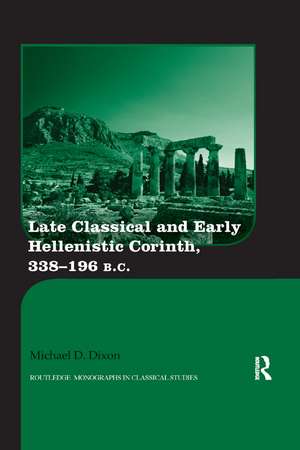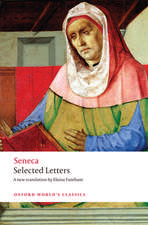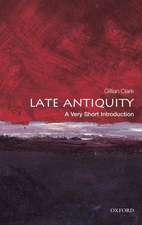Late Classical and Early Hellenistic Corinth: 338-196 BC: Routledge Monographs in Classical Studies
Autor Michael D. Dixonen Limba Engleză Paperback – 12 dec 2019
This study explicates the nature of the relationship between Corinthians and Macedonians that developed in the aftermath of Chaironeia, through the defeat at the battle of Kynoskephalai and the declaration of Greek Freedom at Isthmia in 196 B.C. Late Classical and Early Hellenistic Corinth is not simply the history of a single polis; it draws upon the extant literary, epigraphic, prosopographic, topographic, numismatic, architectural, and archaeological evidence to place Corinth within broader Hellenistic world. This volume, the full f
| Toate formatele și edițiile | Preț | Express |
|---|---|---|
| Paperback (1) | 389.38 lei 43-57 zile | |
| Taylor & Francis – 12 dec 2019 | 389.38 lei 43-57 zile | |
| Hardback (1) | 1060.87 lei 43-57 zile | |
| Taylor & Francis – 3 iul 2014 | 1060.87 lei 43-57 zile |
Din seria Routledge Monographs in Classical Studies
-
 Preț: 310.65 lei
Preț: 310.65 lei -
 Preț: 312.65 lei
Preț: 312.65 lei -
 Preț: 310.81 lei
Preț: 310.81 lei -
 Preț: 311.43 lei
Preț: 311.43 lei -
 Preț: 325.06 lei
Preț: 325.06 lei -
 Preț: 311.37 lei
Preț: 311.37 lei -
 Preț: 312.02 lei
Preț: 312.02 lei - 9%
 Preț: 935.66 lei
Preț: 935.66 lei - 9%
 Preț: 1039.79 lei
Preț: 1039.79 lei -
 Preț: 310.37 lei
Preț: 310.37 lei - 9%
 Preț: 970.50 lei
Preț: 970.50 lei -
 Preț: 312.56 lei
Preț: 312.56 lei -
 Preț: 311.18 lei
Preț: 311.18 lei -
 Preț: 325.64 lei
Preț: 325.64 lei -
 Preț: 309.90 lei
Preț: 309.90 lei -
 Preț: 311.41 lei
Preț: 311.41 lei - 9%
 Preț: 936.87 lei
Preț: 936.87 lei - 8%
 Preț: 383.06 lei
Preț: 383.06 lei - 48%
 Preț: 570.60 lei
Preț: 570.60 lei -
 Preț: 488.71 lei
Preț: 488.71 lei - 29%
 Preț: 995.97 lei
Preț: 995.97 lei -
 Preț: 482.27 lei
Preț: 482.27 lei - 18%
 Preț: 946.74 lei
Preț: 946.74 lei -
 Preț: 484.47 lei
Preț: 484.47 lei - 15%
 Preț: 427.16 lei
Preț: 427.16 lei -
 Preț: 369.77 lei
Preț: 369.77 lei -
 Preț: 386.77 lei
Preț: 386.77 lei - 18%
 Preț: 1109.51 lei
Preț: 1109.51 lei - 30%
 Preț: 849.65 lei
Preț: 849.65 lei - 23%
 Preț: 321.20 lei
Preț: 321.20 lei - 18%
 Preț: 956.39 lei
Preț: 956.39 lei - 15%
 Preț: 427.16 lei
Preț: 427.16 lei - 18%
 Preț: 1060.25 lei
Preț: 1060.25 lei - 15%
 Preț: 427.16 lei
Preț: 427.16 lei - 18%
 Preț: 1119.16 lei
Preț: 1119.16 lei -
 Preț: 371.71 lei
Preț: 371.71 lei -
 Preț: 452.14 lei
Preț: 452.14 lei - 26%
 Preț: 765.59 lei
Preț: 765.59 lei - 30%
 Preț: 819.48 lei
Preț: 819.48 lei -
 Preț: 416.22 lei
Preț: 416.22 lei - 18%
 Preț: 1050.78 lei
Preț: 1050.78 lei
Preț: 389.38 lei
Nou
Puncte Express: 584
Preț estimativ în valută:
74.51€ • 78.00$ • 61.65£
74.51€ • 78.00$ • 61.65£
Carte tipărită la comandă
Livrare economică 07-21 aprilie
Preluare comenzi: 021 569.72.76
Specificații
ISBN-13: 9780367869281
ISBN-10: 0367869284
Pagini: 256
Dimensiuni: 156 x 234 x 14 mm
Greutate: 0.45 kg
Ediția:1
Editura: Taylor & Francis
Colecția Routledge
Seria Routledge Monographs in Classical Studies
Locul publicării:Oxford, United Kingdom
ISBN-10: 0367869284
Pagini: 256
Dimensiuni: 156 x 234 x 14 mm
Greutate: 0.45 kg
Ediția:1
Editura: Taylor & Francis
Colecția Routledge
Seria Routledge Monographs in Classical Studies
Locul publicării:Oxford, United Kingdom
Cuprins
List of Figures List of Maps Acknowledgements Abbreviations 1. Corinth, The "Gateway of Isthmian Poseidon" 2. Corinth in the Age of Philip II and Alexander III, 338-323 B.C. 3. The "Corinthian Troubles," Corinth and the Diadochoi, 323-301 B.C. 4. Antigonos Gonatas and Corinth, "The Passion of his Life" 5. Monuments and Cult in Early Hellenistic Corinth 6. The Achaian Interlude, 243-224 B.C. From Liberation to Rebellion 7. The End of Macedonian Corinth 8.Conclusions and Reflections Bibliography
Notă biografică
Michael D. Dixon is Associate Professor of History at the University of Southern Indiana, USA.
Descriere
This volume challenges the perception that the Macedonian presence in Corinth resulted in a loss of significance and autonomy for the city, arguing that Corinth flourished while Macedon possessed the city. It explicates the nature of their relationship in the aftermath of Chaironeia through to the declaration of Greek Freedom at Isthmia in 196 B


















